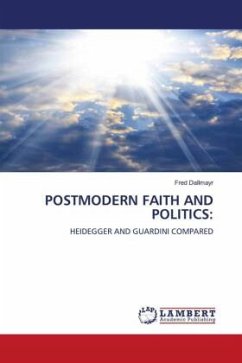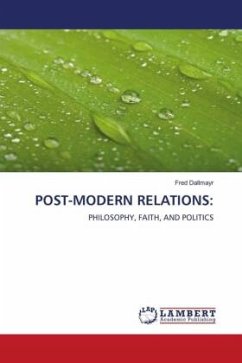We live in difficult times, in disturbing, but also in uplifting times. We experience the end of "modernity" or the "modern age". In my view the basic character of modernity was its "secularism", its preoccupation with secular or worldly concerns. By contrast, religious or spiritual beliefs were restricted to private or internal concerns. Now a basic breakthrough is happening which integrates religious aspirations with secular life without giving dominance to one side or the other. Philosophers like to say that we exit from an age of "dualism" to enter an age of "non-dualism" or integration. The biblical support for this change can be found in the Lord's prayer: "Your kingdom come, your will be done in heaven as it is on earth."The two main witnesses testifying to the coming age are Martin Heidegger and Romano Guardini. The two thinkers have given slightly different expression to the emerging "nondualism".
Bitte wählen Sie Ihr Anliegen aus.
Rechnungen
Retourenschein anfordern
Bestellstatus
Storno








